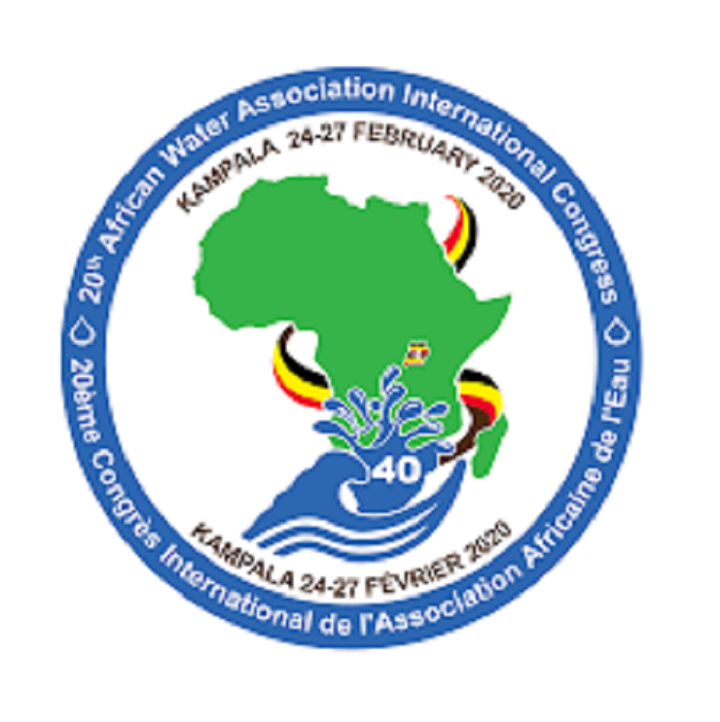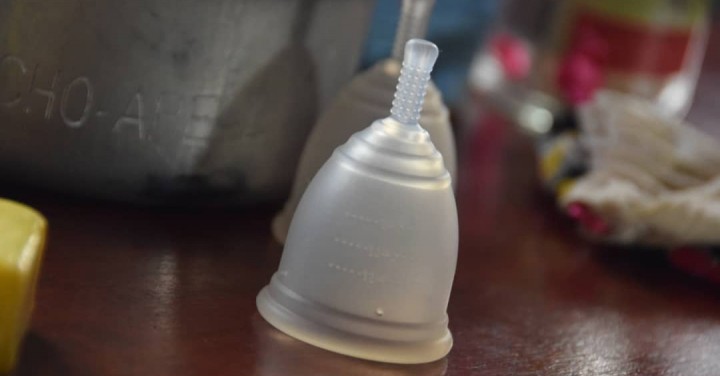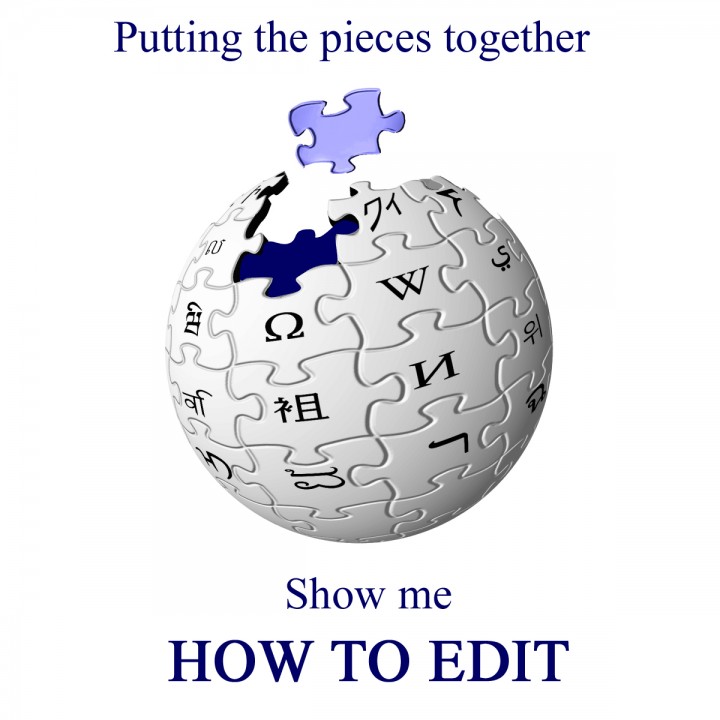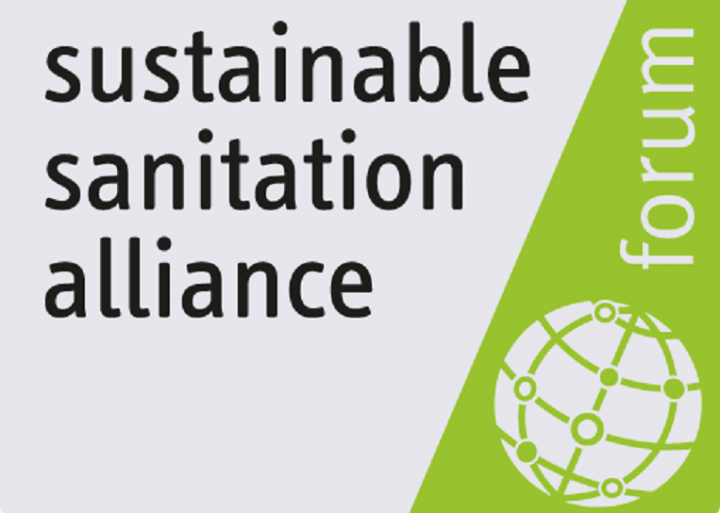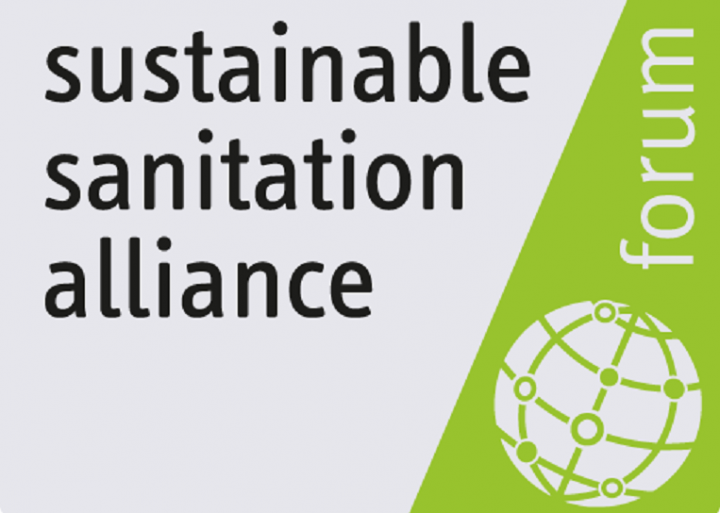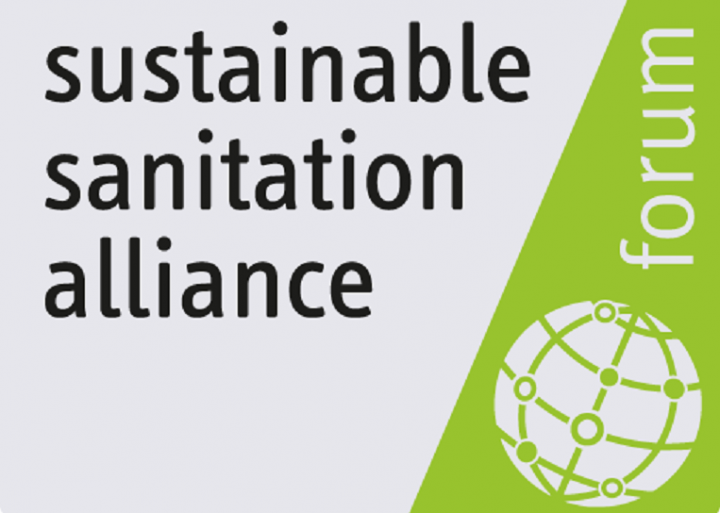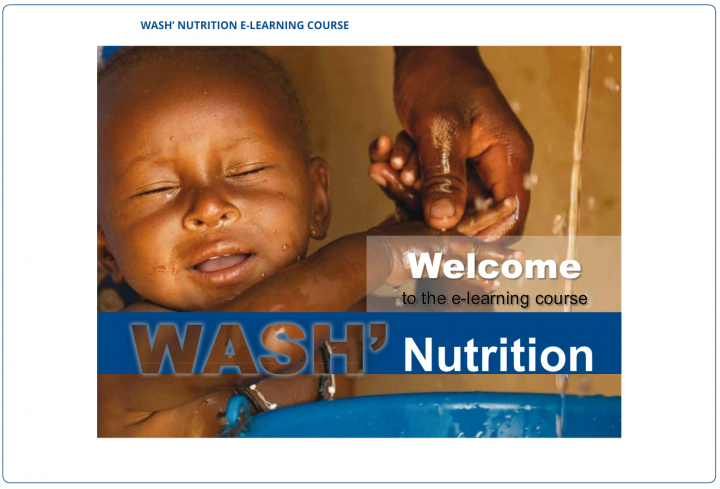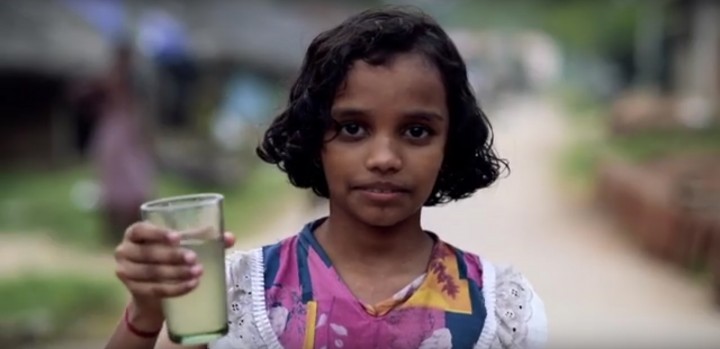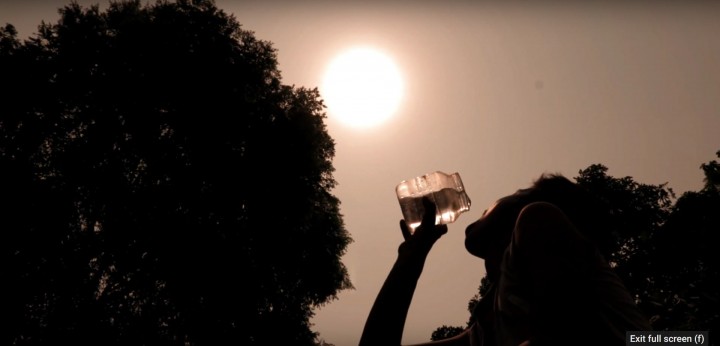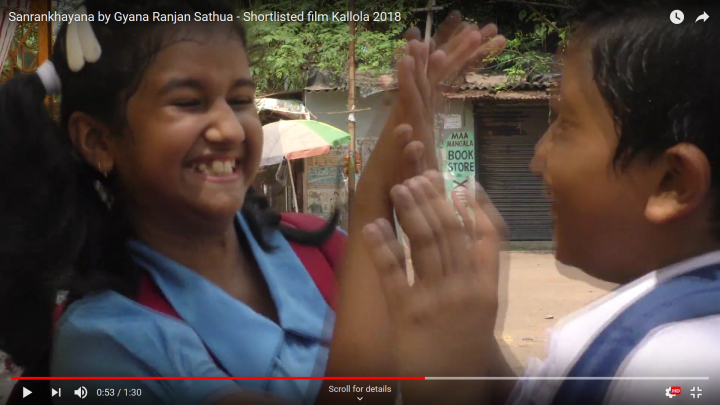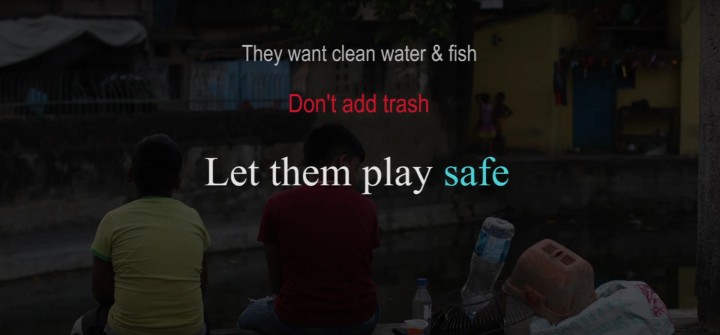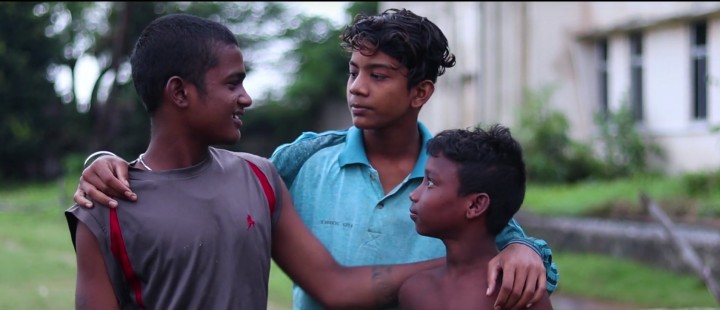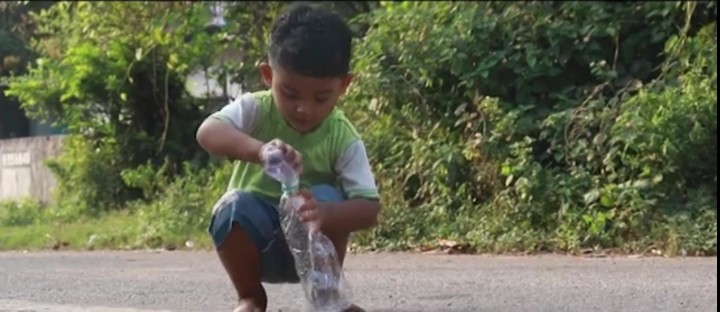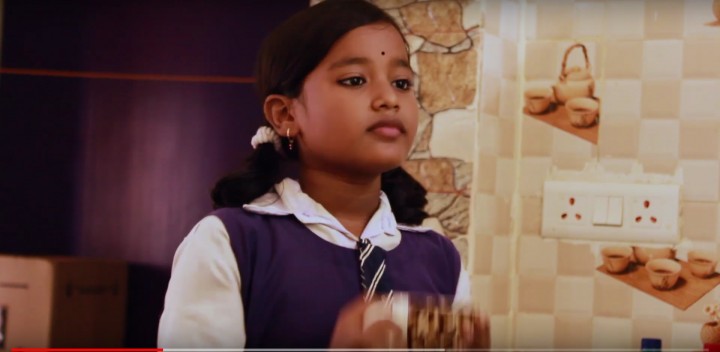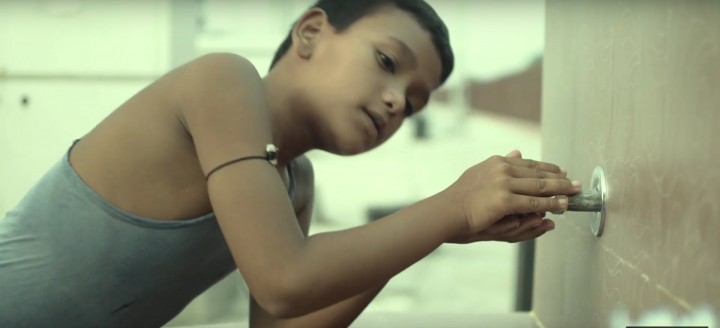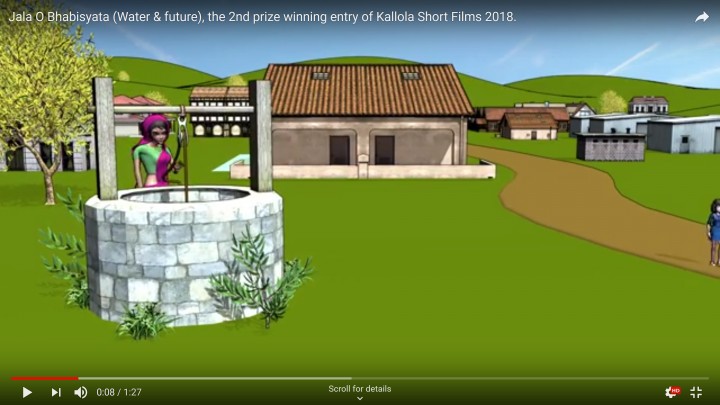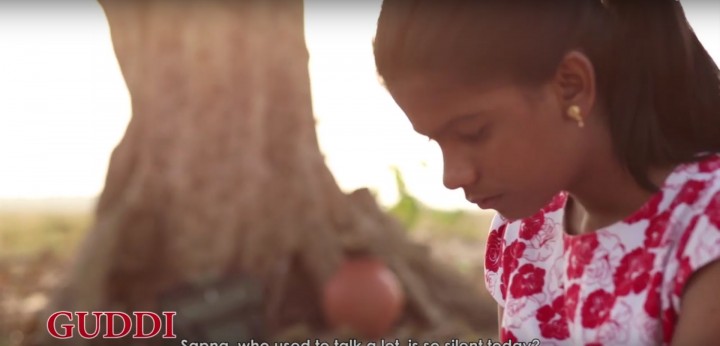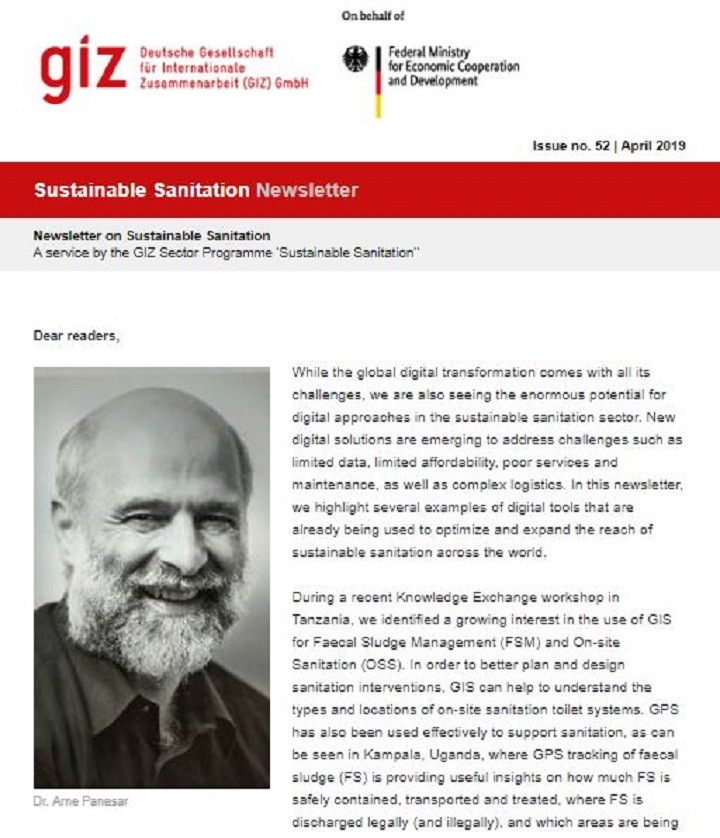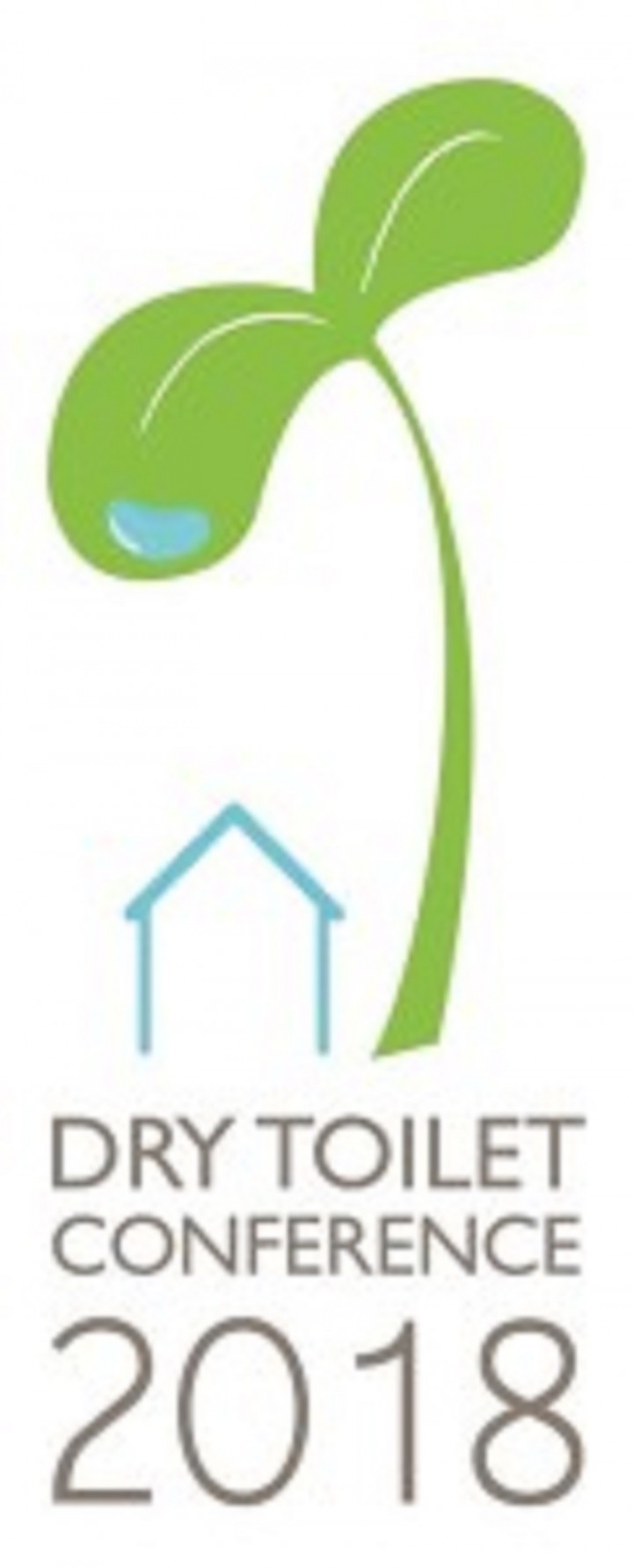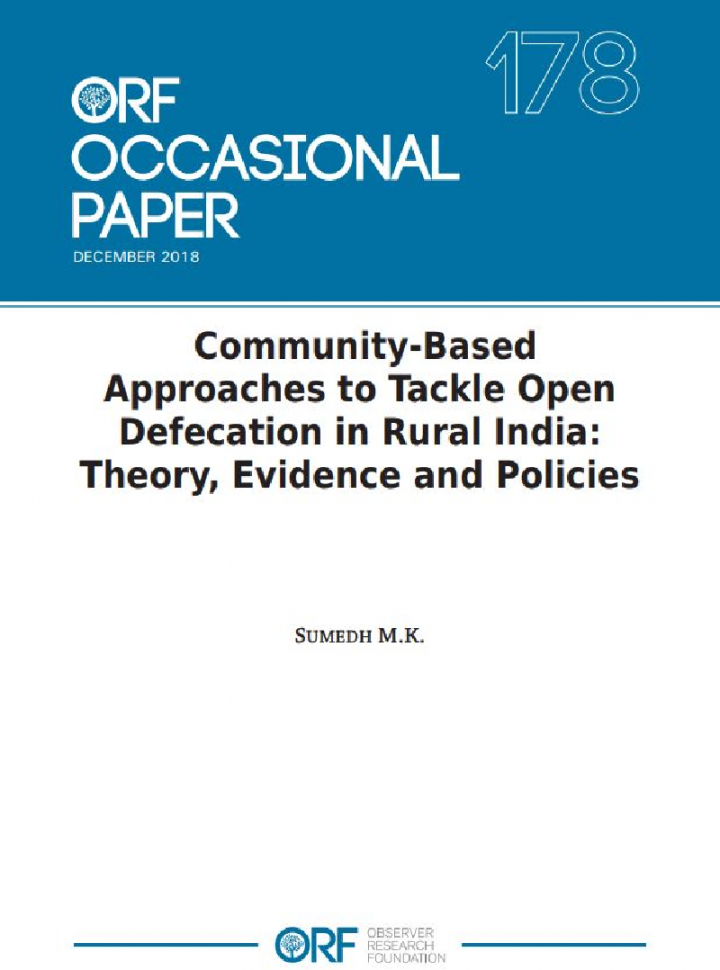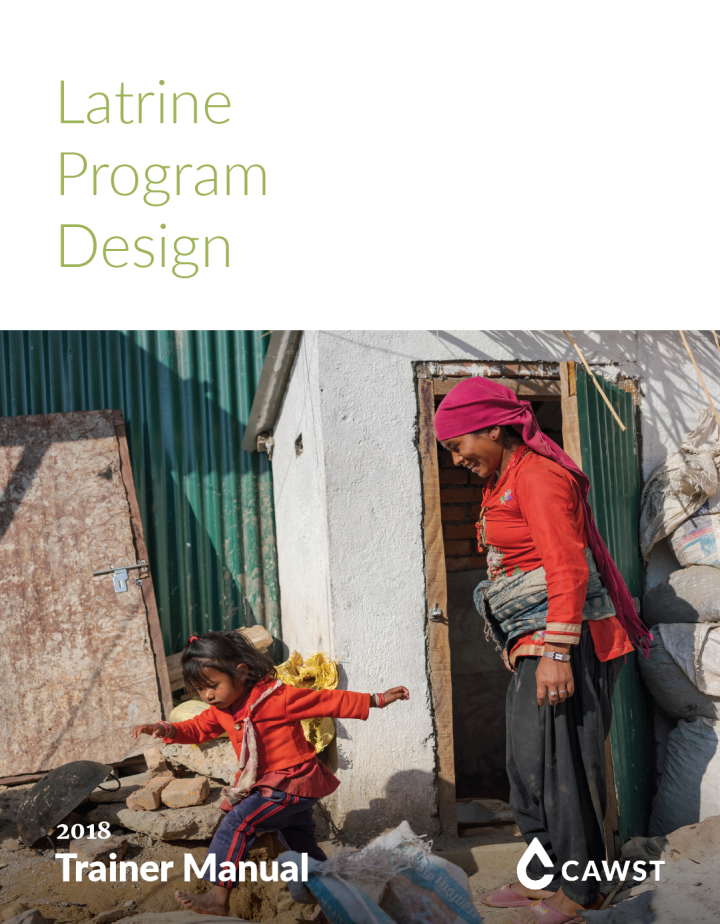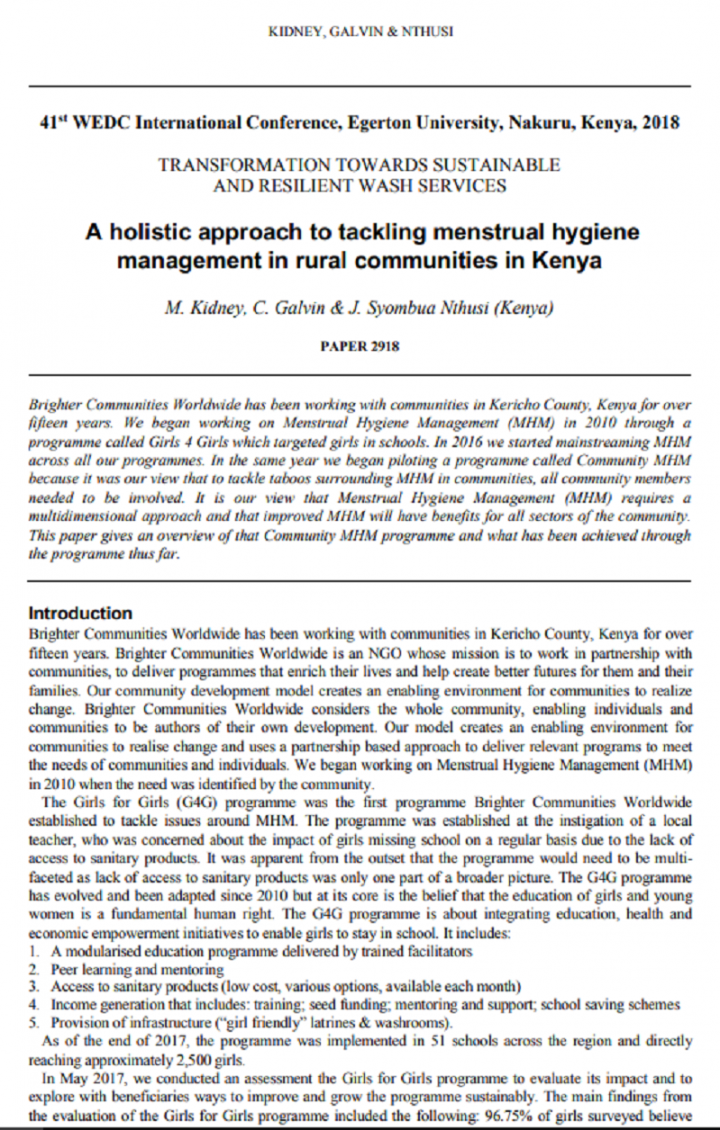Searching for information on Sanitation Workers?
The Sanitation Workers Knowledge + Learning Hub is the best source for all current news, trends, articles and updates on sanitation workers rights around the world.
Please browse the AfWA ICE 2020 presentations repository. The repository is made up of the six tracks that the Congress comprised of. Under each track, there are the different days of the Congress i.e 24th, 25th , 26th Feb 2020. Under the folder of the date, you will find the presentations. Thank you for attending the historic and largest Water Congress in Africa.
Track 1: Water …
Abstract
Innovators in the water and sanitation sector are focused on closing the sanitation gap in developing countries through innovation in technologies that enable waste treatment onsite. To ensure universal access, these technologies need to meet the practices and preferences of different genders. This paper uses an online survey and follow-up telephone interviews with technology developers …
WoMena receives many questions from the women and girls we reach out to, from our trainers and our partners. Therefore, the team collect a series of questions and answers regarding topics like Menstrual Cups functionality, maintenance, health & safety, economy, and other concerns.
WoMena periodically update the questions and answers.
These Youtube playlists contain several videos to explain how to edit WASH topics in Wikipedia.
The videos in Playlist 1 were produced for SuSanA, funded by Bill & Melinda Gates Foundation through contract with Stockholm Evironment Institute.
The videos in Playlist 2 were produced for the SDG edit-a-thon in September 2020, funded by Project Everyone, UK.
Presentations (download from conference website, see external link below, or go to: https://fsm5.susana.org/en/downloads/conference-materials):
Conference convenors:
Bill & Melinda Gates Foundation
BORDA
Eawag-Sandec
Deutsche Gesellschaft für Internationale Zusammenarbeit (GIZ) GmbH
Inclusive Sanitation in Practice (IPS)
Sustainable Sanitation Alliance (SuSanA)
University of …
The film uses the common sight of leaders making many promises in rural areas. It compels a child to take a glass of visibly polluted water from her village to the leader, requesting for clean water. The focus here is to bring to attention that a vote for safe water is what we need to ensure the safety of our children.
The story revolves around a poor thirsty young boy who finds it difficult to quench his thirst, as the river water is unclean and polluted. But thanks to his education - he recalls how his teacher at school had taught him to purify water. He applies his theoretical knowledge to practice, and doing so he succeeds in purifying the contaminated water and thereby quenching his thirst.
In a parallel …
The film shows two children who, on the way to school found water gushing from a broken tap. While no-one took any initiative to stop the water flow, the children used their ingenuity to stop the water from getting wasted. This made them late in reaching school but once they narrated their effort they were commended by all.
Water is a playing element for children. In villages, children spend most of their childhood catching fish, swimming in the rivers and ponds. But these days water sources are full of waste and poisonous material, which is harmful for the water bodies and children. This film is an appeal to keep water bodies clean for the sake of our children and their healthy future.
This film depicts on how unsafe water can affect health of children and their ability to be strong and fit and play football. While one of them is aware about the importance of clean drinking water, he also insists other friends not compromise with the quality of drinking water.
The film shows the inequities in access to clean drinking water. It shows a mother washing vegetables in clean drinking water, rather than using tap water. Her daughter notices this and points out that lack of clean drinking water leads to many child deaths, while here she was wasting clean water. The film ends with the mother realizing the message.
The film depicts a common scene on the railway platform, where there is no drinking water in the taps. The protagonist is a child waiting for his train to arrive who has his own bottle of water. He notices a thirsty child desperately trying to drink a few last drops of water from the railway platform tap. He then tries to help this other child.
A school bag (representing Guddi’s dream) and earthen water pot (representing Guddi’s life) are in conversation about who is more important in Guddi’s life – the bag or the water pot. The school bag blames the water pot saying that Guddi’s dream was to go to school and be a doctor, but she had to choose life instead of her dream. The water pot says it is because of deforestation that …
This newsletter will provide you with a set of updates from the GIZ bilateral water and sanitation programmes in Africa, Asia, MENA and Latin America as well as a selection of news from other sustainable sanitation projects worldwide.
This newsletter focuses on digital approaches in sanitation.
The 6th International Dry Toilet Conference 2018 was held in Tampere, Finland on 22nd – 24th August 2018. The theme of the conference was Dry Toilet Goes Circular with a focus on Cooperation, Co-creation and Experimentation.
Please find the oral presentations and poster presentations below via the links to the page of the GlobalDry Toilet association of Finland.
***** Oral …
Open defecation (OD), an age-old practice in India, impacts the health of individuals as well as their communities. To tackle the problem, the Government of India launched the Swachh Bharat Mission (SBM) in 2014, aimed at making the country open-defecation free (ODF) by October 2019 by giving more attention to community-based approaches. However, while such approaches have helped solve the …
This workshop provides an overview of the six components of a successful latrine program: stakeholder engagement, demand creation, products and services, finances, capacity development, and monitoring. After participating in this workshop, participants will be able to design or strengthen a latrine program for their context. They will have a greater awareness of factors influencing behaviour …
The MOOC series “Sanitation, Water and Solid Waste for Development” is an open-access eLearning program of Sandec/Eawag. It consists of four courses, which have reached more than 80'000 participants. The courses are available for free and constantly running on the learning platform Coursera. All video lectures are also on YouTube.
Please find further information on the webpage given below.
WEDC conference papers are an important source for learning about WASH innovations and lessons learned in the field and more than 150 papers were accepted for the 2018 WEDC conference.
Below are titles of the Emergency WASH papers (for the link see below):
- Designing evidence-based and context-specific hygiene programs in emergencies: could there be an app for that?
- Shedding light on …

